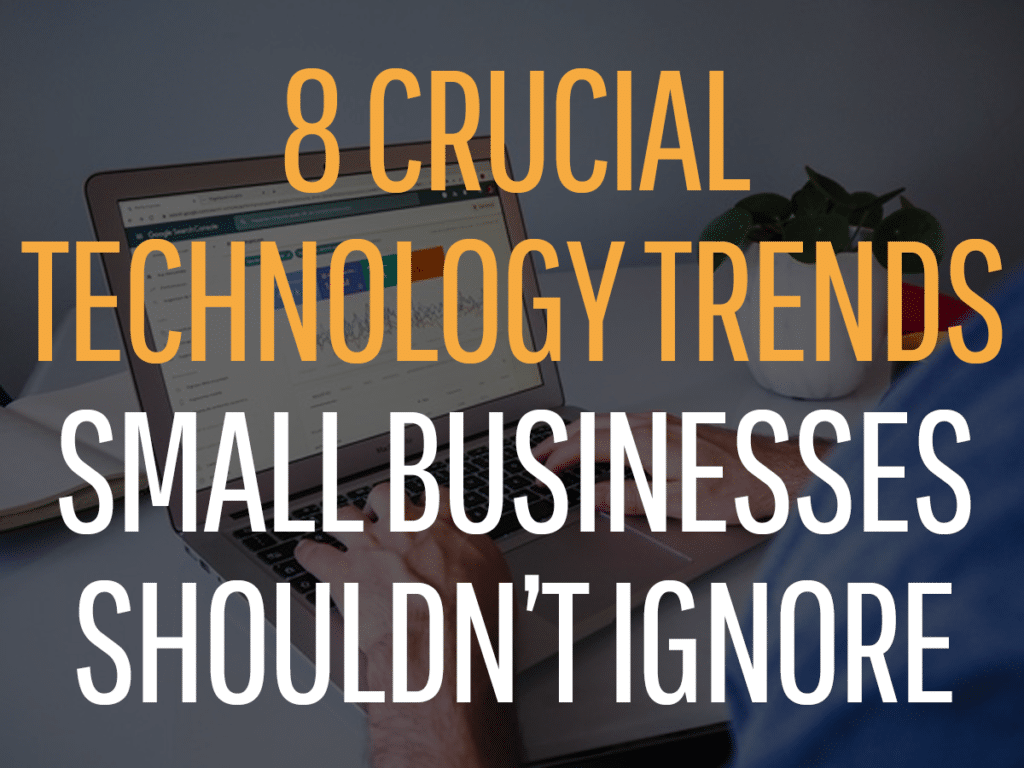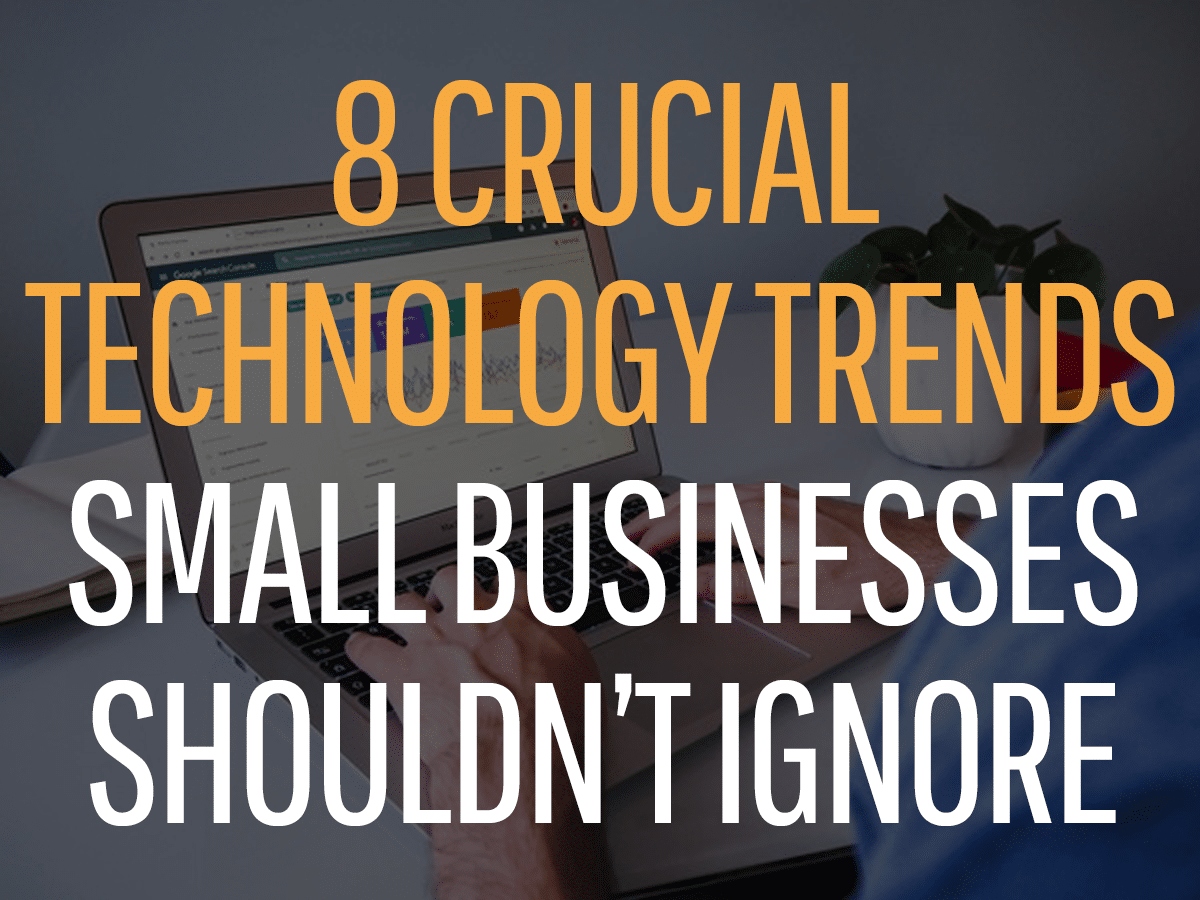Technology Trends For Small Businesses

Keeping up with technology trends can be tricky. More so, if there are more important aspects of your business that you need to focus on.
However, you should not forgo innovation. If anything, leveraging technology trends can help your business grow.
That’s because technology allows you to streamline your processes. Hence, your business operates and generates income while you sleep. This will enable you to focus on essential things, like customer acquisition.
Keep on reading to know what technology trends small businesses can take advantage of.
5G Technology
5G data has been quickly rising, giving way to faster connections and download speeds. This makes online interactions more instant.
Thus, small businesses can capitalize on digital and video communications. More so now that their location no longer limits companies.
In fact, small businesses these days implement a work-from-home set up to maximize their resources.
This is where 5G technology can help, enabling better internet speed and more significant bandwidth. So, it is undeniable that 5G will revolutionize small businesses worldwide.
Extended Reality
Imagine what it is like to live in 2030 and beyond. If you can’t, Extended Reality might help.
“Extended reality” refers to immersive technologies that integrate physical and virtual worlds.
Using extended reality (XR), it’s now possible to look for a home anywhere. There is no need to visit a site to see it in person.
By the time 2022 rolls in, the XR market is expected to hit the $209 billion mark. This incredible growth that the reality of our lives by 2030 is beyond our imagination’s ability to grasp.
Conversational Interfaces
Many businesses have already incorporated Conversational Interfaces or CIU. It is like a voice assistant or a chatbot that provides a better customer and user experience.
In fact, this year, many small and mid-sized businesses are expected to follow suit.
These artificial-driven chatbots are an appealing option for many small businesses. That’s because they’re cost-effective to add to a website.
They also allow a business to get back to customer queries online without needing an employee to respond to them.
Contactless Payments
Contactless payments often utilize mobile wallets, like Google Wallet and Apple Pay. That way, they can do transactions without touching the terminal.
A mobile wallet uses near-field communication (NFC). It is a technology that uses radio frequencies to establish communication between devices. This enables devices to send the payment information to a point-of-sale terminal.
As a result, you get to decrease the wait times and enhance customer satisfaction. Mind you, younger customers (which will make the bulk of consumers within the next decade) prefer contactless payment.
Meanwhile, mobile payments allow you to gather important customer data. This includes their purchasing behavior.
Big Data
Many small businesses think that they’re often too tiny for big data. But this is often far from reality because small businesses need big data to succeed.
Data gives businesses actionable insights to become profitable and more effective in the long run.
This explains why tech-focused Life Science companies are thriving these days. So much so that Michelle Dipp and Jennifer Lum co-founded Biospring Partners. It is private equity that helps fund startups that focus on Life Sciences technology.
Fortunately, the market has many big data tools and solutions, even if you are a small business on a tight budget.
Such tools help track my customer calls, revealing inbound call trends and customer behavior.
One of the perks of using big data tools is you don’t need to have a technical team or a lot of money to use them to your advantage.
Developing an Online Persona
Considering that going digital pay huge sums, it’s still surprising that many SMBs lack a website. However, if you want to drive word of mouth and build customer loyalty online, you need one.
You can purchase a domain name online. From there, you can build a website wherein you can provide essential business information. A website also allows you to build your online presence and leverage digital marketing tactics.
You can outsource these tasks as well. But keep in mind that search engine optimization (SEO) is the key to your success, so you have to consider this as well.
Cybersecurity
Cybersecurity attacks are rising, becoming an issue for every online business out there.
Cybercrimes have also become a lot more advanced. These days, hackers are making sophisticated AI-powered attacks.
So, to protect your company’s data and your customers, you need to consider cybersecurity as a form of prevention.
Edge Computing
Cloud computing allows you to share and access files wherever and whenever. Thus, it also comes with risks.
This is where edge computing could be helpful.
It is a technology where content and data storage are brought to the location that they’re needed. Thus, you can save bandwidth and improve response times.
This meets the need to understand and make decisions about data without sending it to the cloud.
The rise of AI algorithms in the hardware can also host more applications because of improved sensors and AI algorithms’ rise.
Final Thoughts
Listed above are the eight technology trends that small businesses should watch out for. That’s because you can leverage these tech trends to make your business grow.
When used correctly, technology can streamline your business operations. Hence, you can be efficient in manufacturing a product, providing a service, and delighting customers and clients. It also allows you to keep your employees satisfied.
So, set your eyes on these trends so you can gain a competitive edge.




